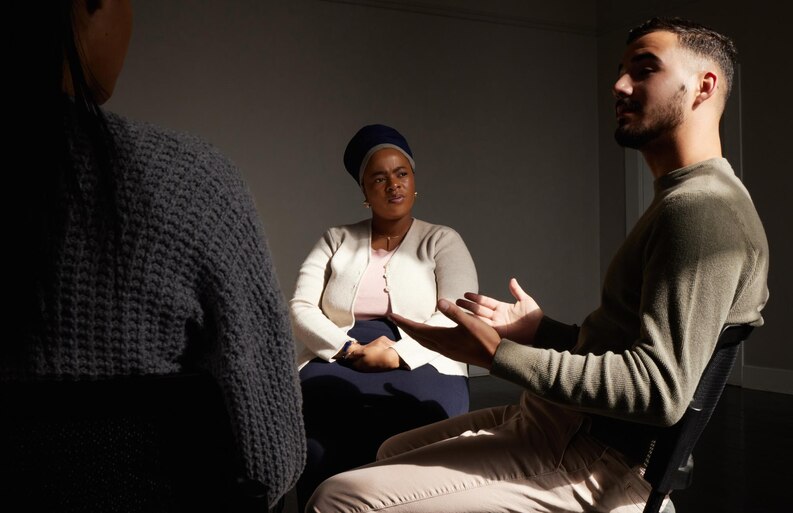Recovering from substance use is a complex and personal journey. For many individuals, finding the right level of care can make all the difference. While inpatient rehab offers intensive treatment, it may not always be feasible for those with work, school, or family responsibilities. This is where Intensive Outpatient Programs (IOP) come into play, offering a structured yet flexible approach to addiction recovery.
This blog explores how IOP supports substance use recovery and why it has become a trusted choice for many individuals in Miami and beyond.
Understanding IOP for Substance Use Recovery
An Intensive Outpatient Program is a form of addiction treatment that combines the structure of inpatient care with the flexibility of outpatient services. Clients attend therapy sessions several times weekly while continuing to live at home and manage daily responsibilities. Unlike residential rehab, IOP does not require an overnight stay, which allows individuals to apply what they learn in therapy to real-life situations immediately.
An IOP typically includes a mix of individual therapy, group sessions, family counseling, and psychiatric care. This level of support is efficient for those transitioning out of inpatient treatment or seeking a higher level of care than weekly therapy can provide.
Who Is IOP Best Suited For?
IOP is an ideal choice for:
- Individuals stepping down from inpatient or residential programs
- Clients who need more support than traditional outpatient therapy provides
- People who have experienced a recent relapse and need re-engagement
- Those with stable living environments and strong support systems
- Adults and adolescents who need to maintain school or work obligations while in treatment
Choosing IOP allows individuals to remain connected to their lives while receiving consistent, evidence-based treatment.

Benefits of IOP for Addiction Recovery
Flexibility with Accountability
One of the most significant benefits of IOP is the balance it offers between treatment and daily life. Clients can attend therapy while continuing their education, maintaining employment, or caring for their families. This flexibility helps reduce the stigma of seeking help and makes recovery more sustainable. At the same time, scheduled sessions and regular check-ins ensure accountability and structure.
Access to Individual and Group Therapy
IOPs integrate both one-on-one counseling and peer support through group therapy. Individual therapy focuses on personal challenges, underlying causes of addiction, and coping strategies. Group sessions offer a space to share experiences, gain support, and develop social skills. This combination creates a well-rounded approach to healing.
Ongoing Relapse Prevention Skills
Relapse prevention is a cornerstone of any effective addiction treatment plan. IOP provides daily or weekly reinforcement of skills like emotional regulation, stress management, and identifying triggers. Clients learn how to anticipate challenges and develop a personalized toolkit for maintaining sobriety.
Family Involvement in Treatment
Addiction affects more than the individual. IOP often includes family therapy to help rebuild trust, improve communication, and educate loved ones on how to support recovery. Involving the family can lead to better outcomes and a healthier home environment.
Cost-Effectiveness Compared to Inpatient Care
Inpatient programs can be costly and may not be covered in full by insurance. IOP offers a cost-effective alternative with high-quality care. Many insurance plans, including Medicaid and Medicare, cover IOP services, making treatment more accessible for a wider range of individuals.
Peer Support and Real-Life Application
In IOP, clients learn in a therapeutic setting and then apply their real-life skills. This immediate integration of therapy into daily routines makes the transition into long-term recovery smoother. The ability to receive therapist and peer feedback enhances growth and accountability.

Common Services Offered in IOP for Addiction
Effective IOPs share several core components that make them successful. These include:
- Cognitive Behavioral Therapy (CBT) to change unhelpful thought patterns
- Dialectical Behavior Therapy (DBT) for emotional regulation
- Trauma-informed care to address past experiences fueling addiction
- Group therapy focused on relapse prevention and skill building
- One-on-one counseling to create a personalized recovery plan
- Psychiatric care for medication management when appropriate
- Family therapy to engage loved ones in the healing process
- Life skills coaching to support long-term stability
- Regular drug testing to ensure sobriety and encourage honesty
The best IOPs take a holistic approach, treating the mind, body, and emotional well-being.
Improving Lives Now’s IOP Program for Addiction Recovery
Improving Lives Now in Miami provides a comprehensive IOP tailored for substance use recovery. Their team understands that addiction is not one-size-fits-all, so each client receives a personalized care plan developed by licensed professionals.
What Sets Improving Lives Now Apart:
- Individual Substance Abuse Counseling: Clients meet one-on-one with a therapist to explore the root causes of addiction, develop coping strategies, and build a strong recovery foundation.
- Substance Abuse Group Therapy: Group sessions allow clients to build peer connections, learn from others, and participate in a supportive recovery community. Learn more here.
- Flexible Scheduling: Sessions are offered in-person in Miami and via telehealth across Florida. This flexibility allows clients to maintain their daily routines while receiving the care they need.
- Bilingual Services: Therapy is available in both English and Spanish to meet the needs of Miami’s diverse community.
- Psychiatric Support: Clients can access licensed providers for medication-assisted treatment when necessary.
- Experienced Clinicians: The staff includes specialists in trauma, addiction, and adolescent care, ensuring every client receives expert support.
Improving Lives Now accepts most insurance plans and works with each client to coordinate benefits and financial accessibility.
Take the Next Step in Your Recovery
Book an Appointment with Improving Lives Now
Recovery is possible with the right support, structure, and guidance. If you are ready to regain control and move toward lasting sobriety, the Intensive Outpatient Program at Improving Lives Now is here to help. Our team of licensed therapists and addiction specialists will walk with you every step of the way.
We offer flexible scheduling, in-person and telehealth options, and bilingual services to meet you where you are in your journey.
Improving Lives Now
7171 SW 62nd Ave. Ste 300, Miami, FL 33143
📧 Email: in**@***************ow.com
📞 Phone: (305) 280-1440
🕒 Hours: Monday – Friday, 9:00 am – 7:00 pm
Reach out today to schedule a consultation and take the first step toward recovery.
Frequently Asked Questions
- Is IOP as effective as inpatient rehab for addiction?
Yes, IOP can be highly effective for individuals who are motivated and have stable home environments. It combines intensive support with the ability to live at home and apply skills in real life. - Can I work or go to school while attending IOP?
Absolutely. IOP is designed for individuals who need treatment but must also manage daily responsibilities. Sessions are scheduled with flexibility in mind. - How long does an IOP program last?
Most IOP programs run between six and twelve weeks, depending on each client’s needs and progress. The schedule typically includes three to five sessions per week. - Does insurance cover IOP?
Yes. Improving Lives Now accepts Medicaid, Medicare, and most commercial insurance plans. Their team can verify coverage and assist with any paperwork. - What happens if I relapse during IOP?
Relapse is sometimes part of the recovery journey. If it happens, the treatment team will reassess the care plan and may adjust the approach or recommend a higher level of care.
